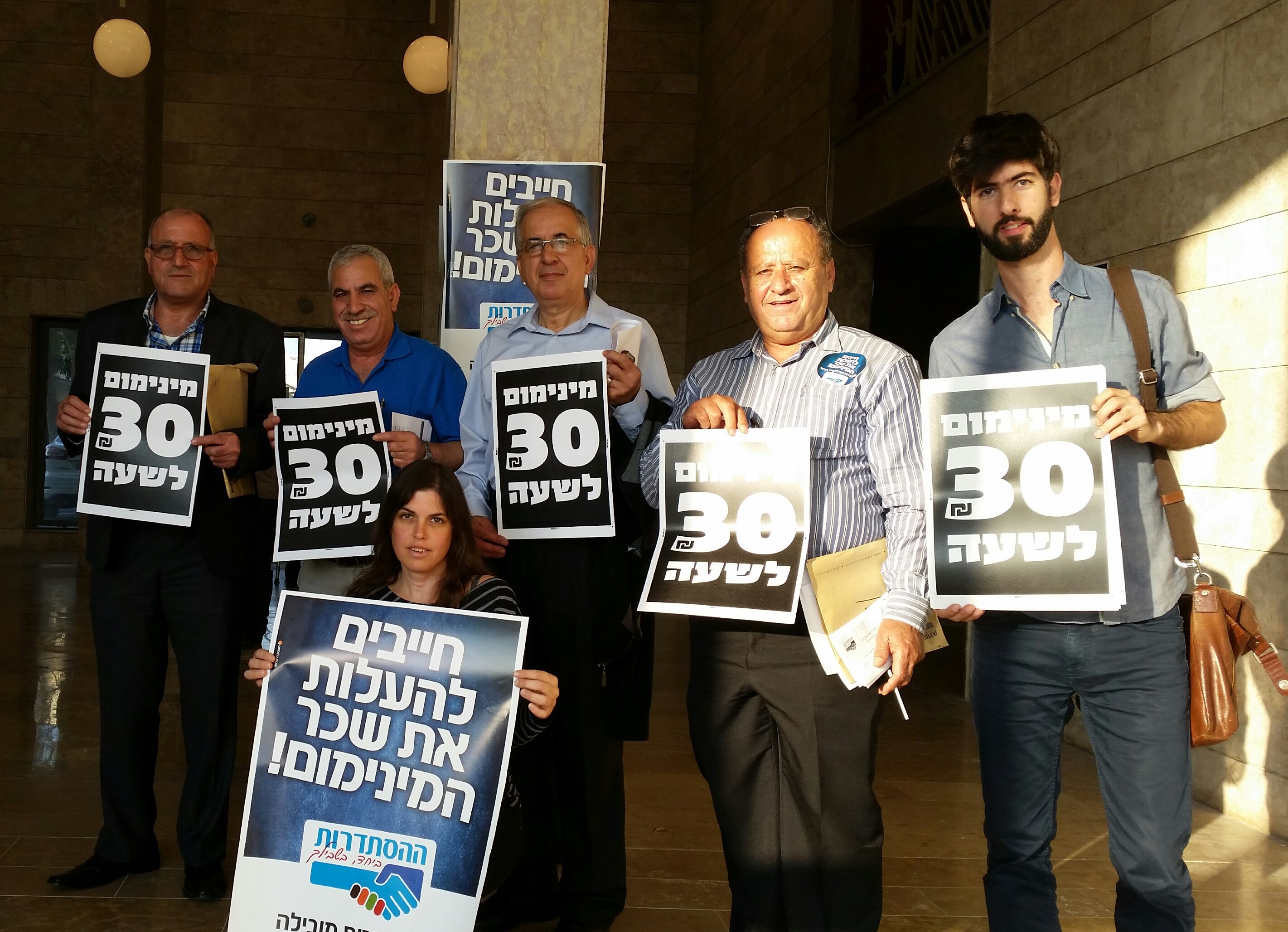Following a demand put forth by the Hadash fraction in the Histadrut (the General Federation of Labor in Israel), on Tuesday, November 18, the chairman of the Histadrut, Avi Nissenkorn, declared the start of a general labor dispute in Israel. The Histadrut says that the grounds for the dispute are the low minimum wage, the increasing use of contract workers, and the “contempt on the part of the state in failing to apply an extension order concerning the employment of disabled persons in the public service.” The significance of this declaration is that the Histadrut is now entitled to call for a general strike in two weeks time.

Hadash fraction members at the Histadrut headquarters in Tel-Aviv on Tuesday demanding to raise the minimum wage to 30 NIS an hour (Photo: Hadash)
Between 2006 and 2012, the monthly minimum wage has been incremented a number of times, from NIS 3,585 until the current figure of NIS 4,300. Hadash is now demanding that the minimum wage be raised to 30 NIS an hour, or NIS 5,300 a month. According to the Hadash “Taking into account the cumulative amount of inflation during the past eight years and the growth in labor productivity since 2006, the minimum wage has fallen substantially. While an exact calculation needs to be based on the actual increase in labor productivity during those years, it is nevertheless clear that employers’ profits have risen during this period at the expense of the working class.”
Hadash MK Dov Khenin, who has proposed a bill to raise the minimum wage to NIS 30 an hour from the current NIS 24, praised the Histadrut’s move, and said that achieving a significant increase in the minimum wage would require turning up public pressure on the Knesset.
In recent weeks, the Histadrut has been escalating the actions it is taking. On one day alone last week, it declared labor disputes at Arkia Airlines, WIZO, Egged, Pheonix Insurance, the Israel Railways, the Mikve Israel Agricultural School, and the Mevaseret Zion local council. On Sunday, Histadrut sanctions at the Employment Service entered their fifth week. Weeks of strikes at Israel’s postal service came to an end in October. Five hours later, the union declared a dispute over plans to privatize government-owned companies.
On Sunday, the Ministerial Committee for Legislation approved a bill, submitted by MK Ayelet Shaked from the extreme-right Bayit HaYehudi, to prohibit strikes over “political decisions.” Shaked remarked “It is inconceivable that the entire economy is on strike because one group of connected people doesn’t want to open the economy to competition.” The bill would make illegal any strikes called against government-led privatizations as well as strikes expressing class solidarity.


